
ComSciCon-NY
June 3, 2022 @ 8:30 am - June 4, 2022 @ 5:00 pm
- This event has passed.
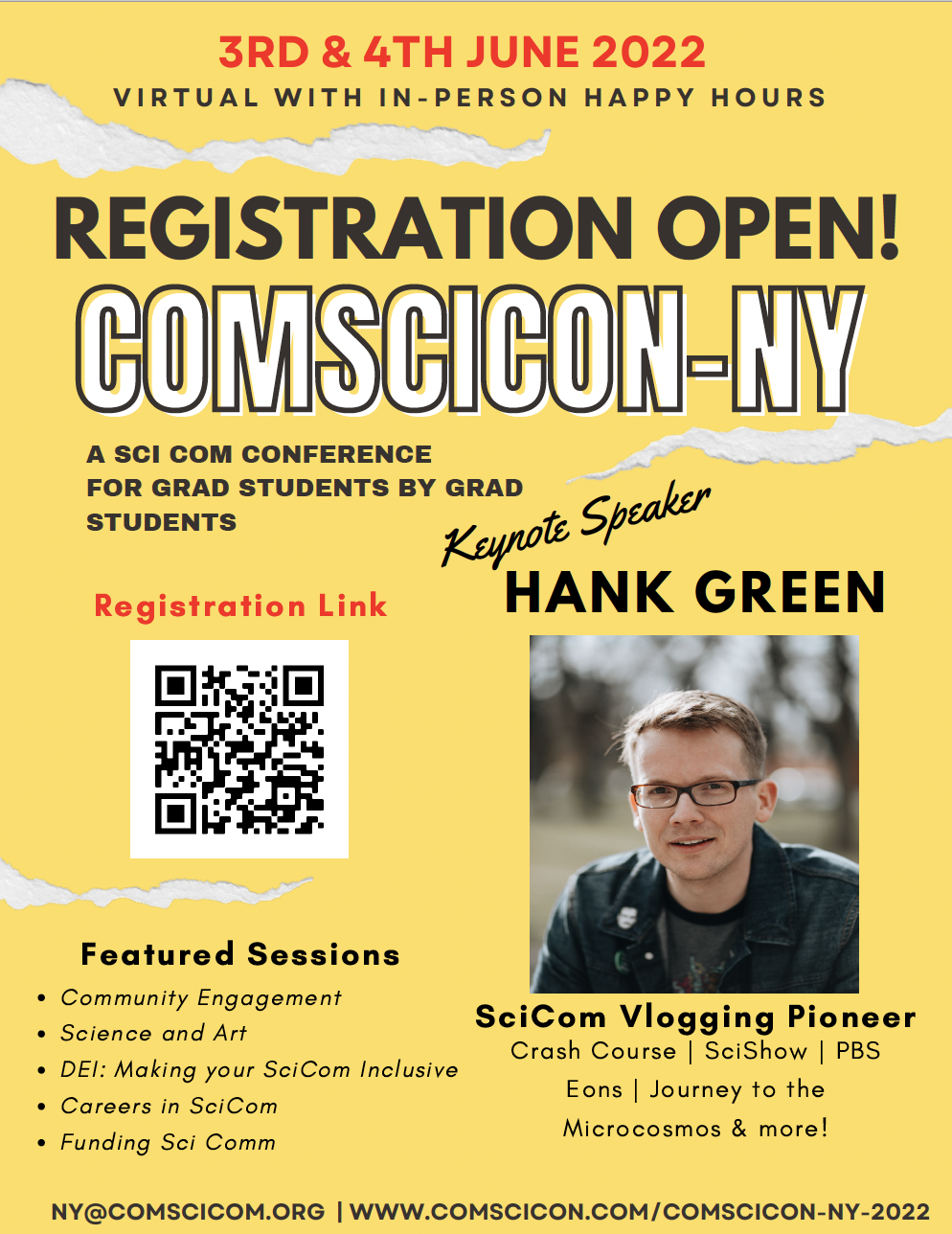
Calling all science communicators! Apply now to join June 3 and 4, 2022. The 2022 ComSciCon-NY conference will be held online with in-person networking in Ithaca and Buffalo.
Learn more about the ComSciCon-NY 2022 speakers
![]()
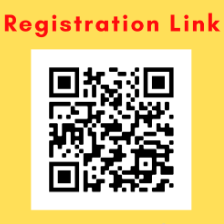 ComSciCon-NY is a communicating science conference for STEM graduate students and post-doctoral researchers from universities based in New York (Ithaca, Binghamton, Syracuse, Rochester, etc.). This statewide chapter workshop and conference is organized and led by graduate students and postdocs. Cornell has hosted this conference annually since 2015 with the support of the office now called Careers Beyond Academia in Cornell’s Graduate School.
ComSciCon-NY is a communicating science conference for STEM graduate students and post-doctoral researchers from universities based in New York (Ithaca, Binghamton, Syracuse, Rochester, etc.). This statewide chapter workshop and conference is organized and led by graduate students and postdocs. Cornell has hosted this conference annually since 2015 with the support of the office now called Careers Beyond Academia in Cornell’s Graduate School.
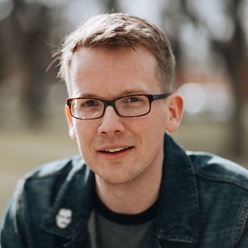
Keynote Speaker: Hank Green
Hank Green started making YouTube videos 15 years ago with his brother, John. His love of the online community prompted Hank and John to co-found other endeavors, including VidCon, DFTBA.com, the Project for Awesome, and Complexly, which has produced nearly a dozen educational YouTube channels, including SciShow and Crash Course. Most recently, Hank and John are raising money to dramatically and systematically improve maternal health care in Sierra Leone. You can join them at PIH.org/hankandjohn.
Panel Sessions and workshops on:
- Community Outreach
- Science & Art
- Diversity, Equity and Inclusion in Science Communication
- Career Panels-Science Journalism, Science Policy, Medical Communications, Field Application Scientist
Interactive sessions with expert panelists and professional communicators
Networking opportunities with peers passionate about science communication
Hands-on training to practice and perfect communication skills
About the organizers:
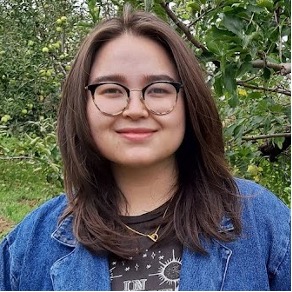
Katerina Roth (@katerina_roth) Ph.D. Student, Food Microbiology, Cornell University
Katerina Roth’s research investigates the genomics and spoilage capability of extremophilic bacteria in an effort to better understand their ecological roles, reduce food waste, and characterize an industrially-relevant genus. Katerina is an officer for both the Food Science Department’s Community Outreach Committee and Cornell’s Vaccination Conversations with Scientists, where she works to bring understandable, hands-on science education to communities in Upstate NY. Katerina is passionate about equitable access to science and higher education. As such, she serves as a Multicultural Mentor to first-year grad students at Cornell. In her free time, Katerina loves to horseback ride, forage for mushrooms, bake, and explore trails with her two dogs, George and Lady.
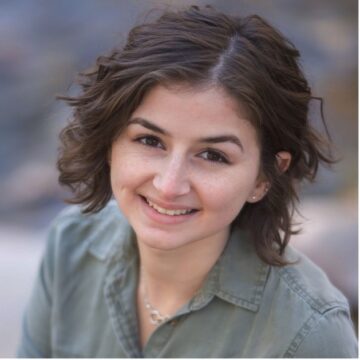
Hannah Fay (@hannahrsfay) Ph.D. Student, Tumor Immunology, Roswell Park Comprehensive Cancer Center
Hannah received her B.S. in Microbiology from the University of Montana. Now a fourth-year Ph.D. candidate, she studies how leukemia stem cells rely on autophagy for survival in the hypoxic bone marrow microenvironment and how this can be exploited therapeutically to prevent relapse in leukemia patients. Hannah’s science communication passion lies in effective & engaging science education at all ages. This includes interactive learning that maintains children’s natural curiosity about the world around them into adulthood, as well as scientific literacy for adults and communication training for scientists. To this end, she has worked as an outreach educator at a hands-on children’s science center and has an active role in the teaching & development of graduate courses at Roswell Park. Hannah enjoys rock climbing & jigsaw puzzles.
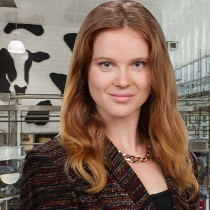
Meghan McGillin (@WTFoodsci), USDA Predoctoral Fellow, Ph.D. Candidate, Food Microbiology, Cornell University
Meghan McGillin is the kind of food scientist that is equally comfortable in a research lab, artist studio, or food processing plant. Following her B.S. from UMass-Amherst, Meghan worked in a dairy plant where she tested raw cream for residue antibiotics. Meghan develops creative microbial solutions for increasingly pertinent issues, like antimicrobial resistance (AMR) and phage-based antibiotic alternatives. Beyond the lab, she bridges the gap between the scientific community and the public’s understanding to promote more inclusive discourse and inspire the next generation of researchers. An outspoken advocate for the use of art as a tool to convey science and humanize research, her award-winning video abstract utilized 3D and 2D animation to effectively illustrate the nuances of the phage lytic cycle and the role of synthetic engineering in developing better antimicrobials. See her rock’n’roll food science blog: foodsci.wtf and website: www.foodsci.wtf
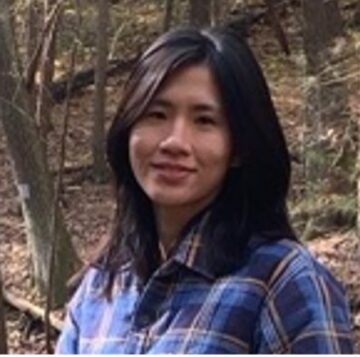
Hsin-Yun (Rachel) Chang (@HsinYun_Rachel), Ph.D. candidate, Biomedical and Biological Science Program, Cornell University
Hsin-Yun (Rachel) studies the genomic regulation of hormetic memory to better understand how mild-stress experience can benefit health and delay aging. She aims to use her research expertise to convey the genetic and epigenetic code influencing human health to the public. She is also passionate about inspiring the next generation of young scientists, improving equity in higher education and the scientific research environment, as well as advocating for women in science. During her Master’s degree in Taiwan, she held a Science Outreach Workshop with undergraduates focused on conveying the knowledge of neuroscience underlying Oscar award-winning films. She was a co-chair of the 2021 Cornell BBS Symposium committee, in which she hosted the keynote round table discussion focusing on gender inequity and obstacles for women in science. She is excited to recruit more scientists to the mission of promoting the accessibility of science to everyone.
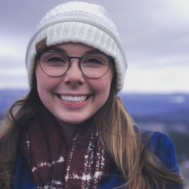
Megan Keller (@MRKmicrobes), Ph.D. Student, Microbiology, Cornell University, https://mrk269.wixsite.com/megankeller
Growing up in Kansas, Megan found herself gravitating towards the unsolved mysteries of the natural world around her. She first dabbled in research on breast cancer therapeutics during her B.S. in Biology at Florida Gulf Coast University, minoring in Chemistry and Climate Change. Presenting her work at numerous local conferences and the ASCB national meeting, she fell in love with science communication. Shifting focus from cancer to microbiology, she now focuses on uncovering antibiotic resistance mechanisms in the gut pathogen, V. cholerae. Megan created a science blog to share her knowledge and experience, dissect the wonderful and diverse world of science, take deep dives into various relevant topics, and demystify a number of scientific subjects. As a staff science writer for The Cornell Daily Sun, she actively publishes articles relating to ongoing research across campus. Megan regularly volunteers in outreach programs, tables events and workshops to promote science literacy.
About ComSciCon
As part of a national organization, ComSciCon attendees have founded new science communication organizations in collaboration with other students at the events, published over 80 articles written at the conferences in popular publications with national impact, and formed lasting networks with student alumni and invited experts. Learn more about ComSciCon
Past Cornell hosted events and participant stories have garnered media coverage:
Science Communication Workshop Aims to Engage STEM Researchers Across New York ComSciCon at Cornell grows into 6th year August 12, 2019
Patients’ Waste is this Scientist’s Treasure November 2019
Reflecting on Year 2 ComSciCon-Cornell 2016
Reflecting on ComSciCon-Cornell, a regional workshop for upstate New York July 2015
How Gametes Came To Be. Natural History Magazine. 2014
Read about past events: ComSciCon-NY 2021, 2019, 2018, 2017, 2016, 2015
Details
- Start: June 3, 2022 @ 8:30 am
- End: June 4, 2022 @ 5:00 pm
- Event Category: Careers Beyond Academia
- Event Tags:build your skills, communication, Explore your career options, professional development
Other
- Topic
- Careers - Non-Academic, Diversity & Inclusion
- Focus Area
- Build Your Skills, Prepare For Your Career
- Transferable Skills
- Communications, Community Engagement, Leadership & Management


